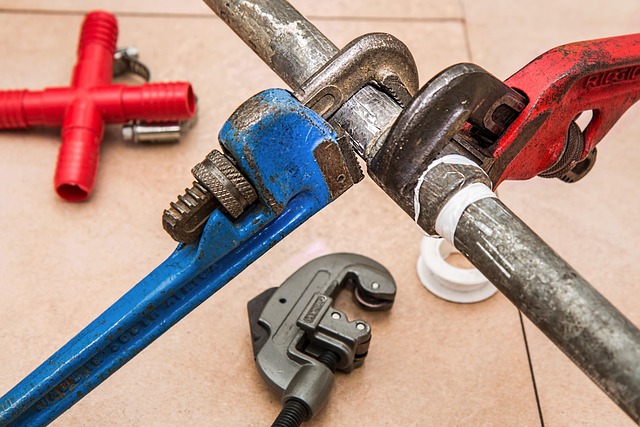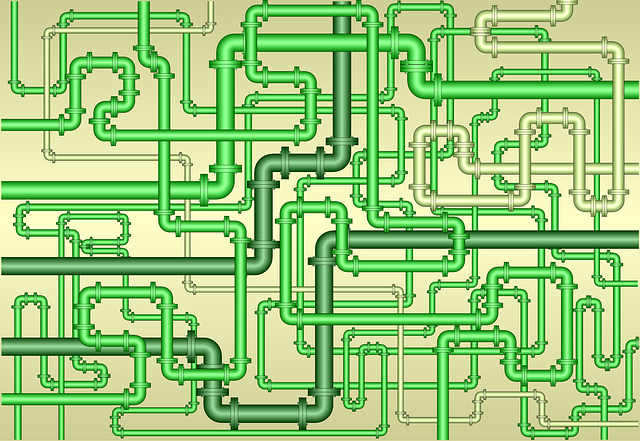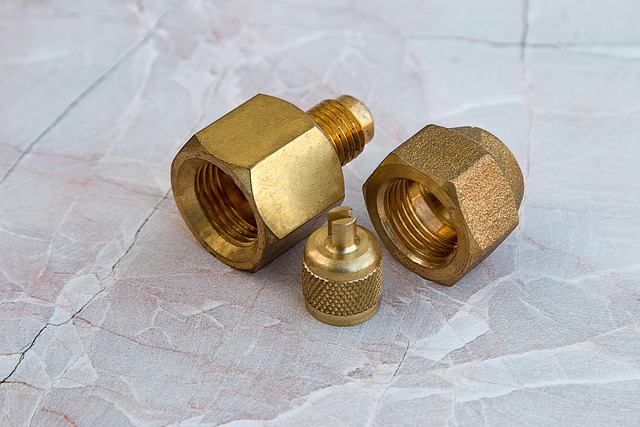Leak detection is essential for home maintenance to prevent water waste and structural damage. Common indicators include rising water bills, stains, and damp areas. Residential plumbing services utilize advanced technologies like moisture meters and thermal imaging cameras to locate subtle leaks. These professionals provide valuable insights into preventive measures and create a comfortable living environment. Homeowners should visually inspect walls and floors for moisture, use plumbing tools, and contact experts for diagnostic assistance. Advanced technology in residential plumbing has revolutionized leak detection with smart sensors and real-time data analysis. Regular maintenance, including periodic inspections and simple tasks like pipe inspection, is key to preserving home integrity and preventing costly leaks.
“Stay ahead of potential water damage with effective home leak detection and repair strategies. This comprehensive guide delves into the heart of common sources and signs, empowering homeowners to identify issues early. Discover the pivotal role that residential plumbing services play in mitigating leaks, from diagnosis to remediation. Learn essential steps for assessing pipeline and fixture problems, explore advanced technology in water leak detection systems, and gain cost-effective solutions to prevent extensive damage. Additionally, find maintenance tips for maintaining plumbing integrity.”
Understanding Home Leak Detection: Common Sources and Signs

Leak detection is a critical aspect of maintaining a home, and recognizing common sources and signs can help homeowners address issues promptly. Water leaks can originate from various parts of a residential plumbing system, including pipes, fixtures, appliances, and even the roof. In residential plumbing services, one of the most visible indicators of a leak is an increase in water bills, suggesting unusual consumption patterns. Other telltale signs include mysterious water stains on walls, ceilings, or floors; peeling paint; and damp areas that weren’t present before.
Common sources of leaks range from broken or loose pipes due to freezing and thawing cycles to faulty toilets, dishwashers, or washing machines. Old, corroded pipes are also prone to leaks, as are joints and fittings that have worn out over time. For homeowners, staying vigilant and regularly inspecting these areas can help in early detection of potential problems. Prompt action on leak detection not only saves water but also prevents damage to property caused by persistent moisture.
The Role of Residential Plumbing Services in Leak Repair

When it comes to home leak detection and repair, residential plumbing services play a pivotal role. These professionals are equipped with the knowledge and tools to identify even the most subtle leaks that could be hiding behind walls or under floors. They employ advanced technologies like moisture meters and thermal imaging cameras to pinpoint the source of water intrusion, ensuring efficient repairs without further damage.
Residential plumbing services not only fix leaks but also offer valuable insights into preventive measures. They can recommend upgrades to home systems, install modern fixtures that reduce water wastage, and provide tips on maintaining pipes during colder months. By leveraging their expertise, homeowners can save on utility bills, prevent costly damages, and ensure a more comfortable living environment.
Steps to Identify and Assess Pipeline and Fixtures Issues

To identify and assess pipeline and fixtures issues in a residential property, start by examining visible signs of water damage or moisture on walls, ceilings, and floors. Check for discolored spots, peeling paint, or warped drywall, as these could indicate persistent leaks. Pay close attention to areas around sinks, faucets, toilets, and appliances, where leaks are most common. Additionally, look out for low water pressure, which might suggest clogged pipes or faulty fittings.
Next, use a plumbing tool like a moisture meter or leak detector to scan through walls and floors for hidden moisture. These tools can pinpoint the exact location of leaks, even if they’re behind fixtures or under flooring. Once potential problem areas are identified, inspect pipes for corrosion, rust, or damage. Check fittings and valves for loose connections or wear and tear. If you’re unsure about any aspect, consider reaching out to residential plumbing services for expert assistance in diagnosing and repairing these issues effectively.
Advanced Technology in Water Leak Detection Systems

The world of residential plumbing services has seen a significant evolution with the integration of advanced technology in water leak detection systems. These cutting-edge solutions go beyond traditional methods, offering more efficient and precise identification of leaks within homes. By leveraging smart sensors and real-time data analysis, these systems can detect even the smallest moisture variations, alerting homeowners before damages occur.
Imagine a network of connected devices throughout your home, continuously monitoring water flow and pressure. If an anomaly is detected—a sudden change in patterns, for instance—the system immediately sends alerts to your smartphone or other designated devices. This proactive approach allows for quick response times, minimizing potential water damage and the costly repairs that often follow. Advanced technology also enables remote monitoring, giving homeowners peace of mind, especially when they’re away from home.
Cost-Effective Solutions for Homeowners: Preventing Extensive Damage

For homeowners, preventing water damage caused by leaks is a cost-effective solution that saves both money and time in the long run. Regular maintenance and timely repairs are key to avoiding extensive and costly repairs often associated with plumbing issues. Simple measures like inspecting pipes for corrosion, checking for leaks around fixtures, and maintaining water heaters can go a long way in preserving your home’s integrity.
Investing in residential plumbing services for regular check-ups is a proactive approach. Professional plumbers can identify potential problems before they turn into major disasters, saving you from unexpected bills. By addressing leaks promptly, homeowners can also reduce the risk of mold growth and structural damage, ensuring a safer and healthier living environment.
Maintenance Tips: Ensuring Long-Term Plumbing Integrity

Regular maintenance is key to preserving the integrity of your home’s plumbing system and preventing costly leaks. Homeowners should schedule routine inspections, at least once a year, to identify potential issues before they become major problems. During these checks, inspect pipes for any signs of corrosion, damage, or unusual noises—indicating potential weak spots. Also, pay close attention to fixtures, especially older models, as worn-out parts can lead to leaks over time.
Simple preventive measures like insulating pipes in colder regions and using water-saving fixtures can significantly reduce the risk of leaks. Additionally, keep an eye on your water bills; sudden spikes might suggest hidden leaks that require immediate attention from professional residential plumbing services. Regular maintenance ensures your plumbing stays in top condition, providing peace of mind and saving you from unexpected repairs.
